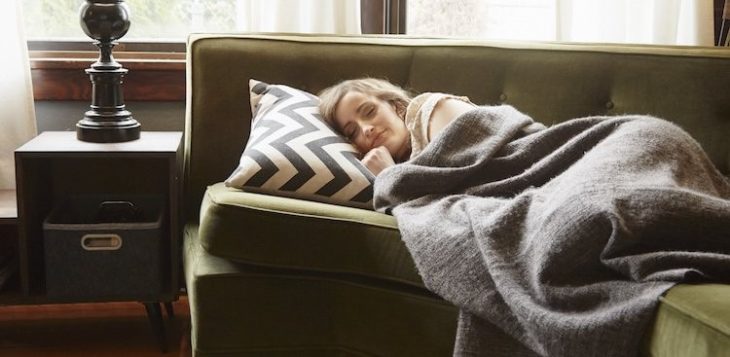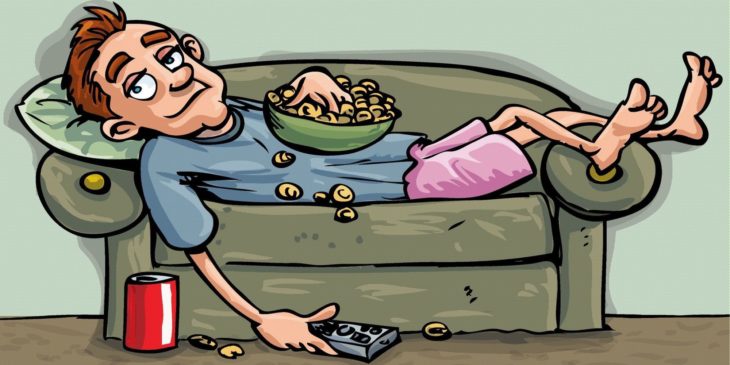What do you do when one of the things you used to like about yourself the most, looking back, becomes one of the things that you like about yourself the least?
From as young as I can remember, a rocket ship of ambition propelled me forward in all that I did. I didn’t — and still don’t — have a wide variety of interests, because writing was where I excelled. I threw everything into it. My parents, of course, fanned the flames of this. They loved having a daughter who made them proud.
And I loved getting some attention. My older brother Eliot*, his bipolar disorder and his drug and alcohol addictions, consumed most of my parents’ energy and nearly all of their attention. I wrote a poem when I was 13 or 14 that I can remember to this day because it still applies to my life sometimes. It was called “Measuring Cups” and it was about parents struggling to measure out love and attention equally amongst their children, but failing. When I was that young, the best way I could find attention, short of developing a heroin addiction myself, was to impress my parents with awards and articles and prizes and accolades. There was no confusion about this lifestyle, no hard choices to make. All I had to do was whatever made me look the best.

Source: The Muse
The problem over time was that my ambition became my replacement for self-esteem. Ambition is what you are going to do and how hard you will work to do it and I prided myself from my teen years through my mid-20s as being one of the most ambitious people that I knew. I didn’t have a social life the same way kids my age did in high school, college, and after college because I was always working on something else. The thing I liked most about myself was my resume and I thought that being ambitious and successful made me great.
But the thing is, I didn’t feel great. I especially didn’t feel great about who I was beyond what I was good at doing. For whatever reason, getting a pat on the head as its own reward stopped turning my crank. Throughout my mid-20s, I increasingly felt like a hollow, substance-less person when I realized I was no longer impressed with my own ambition. I began suffering from a bout of depression that sapped all the feelings of joy out of my life and I would make myself do things — like writing articles — even when I stopped enjoying it. I was attracted to men — a reporter for The New York Times, a blogger at Gawker Media, a couple of published authors, for instance — because I admired them for being ambitious and successful, but not because they treated me well or cared at all about me. I didn’t know how to pick a good partner for me, other than picking people who also had a good resumes. I started to feel paranoid about not having real, true friends and increasingly feeling used.
That’s because self-esteem is something different than ambition. Being ambitious, or successful, or both, do not equate having high self-esteem. It might sound like they would, but they don’t. The truth is that self-conception — the way that we think of ourselves — is a huge part of our mental health. For the longest time, my self-conception had just been my resume. And all that changed enormously for the better when I started thinking of myself, my wants, and my needs in a way that might sound kind of bizarre:

Source: Medium
I started thinking of myself like a former child star.
This is an admittedly weird way to think about myself, considering I’ve never acted a day in my life. Yet, it’s shockingly apt. For a young writer, I had a precocious adolescence that ill-prepared me for any thing other than precocity. At 14, I started writing a book and I was performing slam poetry in festivals. At 15, I was writing for a local newspaper. At 16, I had gotten into NYU. At 17, I was competing in slam poetry competitions. And by 18, I was making myself incredibly mentally sick, not eating enough, drinking and drugging, and constantly bullying myself for not being more successful. A lot of my concerns at 18 were about ending my sophomore year of college, school being halfway over, and not having published a book yet. Let me repeat: I was 18 and I hadn’t published a book yet. I mean, how fucking batshit crazy is that?I’m sure you can understand how I didn’t relate well to people my own age, nor was I particularly grounded enough to deal with real life.
I had always had a kinship and empathy for child actors and actresses who went off the rails —both Kirsten Dunst and Lindsay Lohan have always strangely fascinated me. I kind of understood, in this weird way, why they struggled with transitioning from “precocious child star” to “respected adult actress.” Even though we are in totally different industries, I could empathize with having accomplished a lot at a young age, being told you were great by other people but not necessarily having self-esteem, and feeling lost and confused about what do to next.
In my mid-20s, thinking of myself as a former child star gave me a frame of reference I could relate to and insight into ending my very own “off the rails” narrative. I was only 24 years old, deeply and seriously depressed, and thinking about how I didn’t want to live anymore, because if I felt so crappy all the time, what was the point? Something had to change. And what had to change in order for me to move on, I came to see, was blind ambition. I had to stop being ambitious for ambition’s sake. It had stopped making me feel happy, it wasn’t bringing love or friendship into my life, and a better use of my time and energy could be put towards funneling a reasonable amount of ambition into things I’ve actually cared about.

Source: wedowe
Making this change within myself hasn’t been easy. I was blindly ambitious for so long that not going 120 mph, not living life based on what looked good on my resume, felt like failure. Taking time for myself to do normal-person things like watching TV, made me feel guilty and lazy. I still feel paranoid about not being included and/or not being respected. I even feel self-conscious about whether people I don’t like like me. I realize how stupid that all is intellectually, but it has to be reprogrammed in my brain. Old habits do die hard sometimes and I still struggle with this stuff — although much, much, much less than before. (Dating men for the past couple of years who aren’t in the same industry really helps.)
The feelings of guilt and laziness will go away, I assume. However, it has taken me a long time to figure out what are the things I actually care about. Well, here are some things: I’ve been a blogger for The Frisky for three years, actually enjoying what I do on a day-to-day basis. (There’s a thought!) I’ve been tinkering with a book proposal for about a year, although I’ve been going at a slow pace with it because I don’t want to force myself. I’ve realized that having a life partner and perhaps children would both make me really happy. And I have vague notions of someday of teaching media literacy to kids.
Come to think of it, a lot of my future plans are purposefully kind of vague. It’s so … liberating.
I’ve been on one side of the uber-ambitious lifestyle and now that I’m on the other side, I can more clearly see others in its throes. I can smell ass-kissers and social climbers like they’re some dude who crapped himself on the subway. Of course, I can’t say for sure that other uber-ambitious people suffer from it the way that I did. Maybe each of them is perfectly content and happy beyond measure.
I suspect not, though. I suspect many of them bully themselves. I suspect many of them have insecurities that they’re just better at dealing with — or hiding — than I was.
And to that end, I wish for them all of the happiness — and liberating vagueness — that I enjoy today.
Original by
